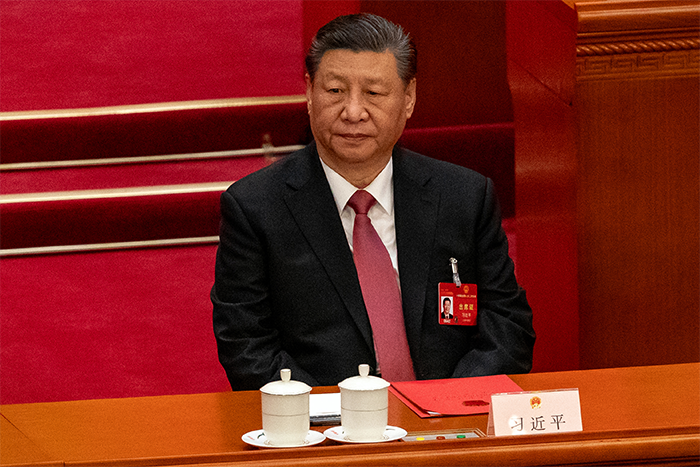Interviews / Asia-Pacific
14 March 2025
China Facing the Rise of Donald Trump to Power: Between Economic Challenges and Strategic Acceleration

On 5 March, the opening of the Chinese People’s Political Consultative Conference took place, during which the country’s various economic objectives were discussed. This meeting allows the Chinese Communist Party to outline the trajectory it wishes to follow and update national policies. As international balances are disrupted by Donald Trump’s accession to power, China is adapting its strategic positioning. What challenges is Beijing likely to face in terms of economic development? What could be the implications of Donald Trump’s rise to power on the Chinese economy and the Taiwan issue? What are the prospects for Chinese foreign policy, particularly with regard to Sino-European relations? A point of view from Emmanuel Lincot, research director at IRIS, co-head of the Asia-Pacific Programme.
What assessment can be made of the economic situation in China? What are the challenges for the Chinese economy, particularly following the announcement of the increase in US tariffs on Chinese products?
Li Qiang, Premier of the People’s Republic of China, has announced a 5% growth target, which should be taken with caution, as the economy is actually facing issues related to real estate speculation and a significant rise in unemployment. This announcement is likely aimed at stimulating investment and creating a climate of confidence for the development of a high-value industry like microprocessors; a difficult bet, as the economic climate is unfavourable. While the tariffs imposed by Donald Trump are not yet significantly affecting the economy, they may be the start of heavier sanctions. Furthermore, the Premier’s announcements are in line with a notable increase in the military budget by more than 7%. In short, China is setting its course between reducing its dependence on external high-tech imports and a desire to confront the United States militarily.
While the Taiwan issue remains unresolved, should we expect an intensification of tensions between Taipei and Beijing?
Xi Jinping clearly makes Taiwan a priority. The recurring provocations from Chinese fighter jets and coast guard, combined with daily cyberattacks, signal the worst. It is highly likely that the tumultuous meeting between Volodymyr Zelensky, James David Vance, and Donald Trump has further reinforced Xi Jinping’s diagnosis: the United States is unreliable. Chinese propaganda had already hinted at this to anyone willing to listen in August 2021, when the Americans shamefully left Kabul, arguing that Washington would abandon Taiwan as well. Have we reached this moment of truth? The Taiwanese are both resigned and worried. The Japanese and South Koreans are increasingly considering acquiring nuclear weapons and strengthening their partnerships with Europeans. This means at least two things: the West, in its transatlantic relationship inherited from 1945, has lived, and the United States has given up on becoming an imperial power intervening at all times and in all places.
As Donald Trump gradually withdraws from certain theatres of military and humanitarian crises, what role might China play in this paradigm shift?
It will be opportunistic. A telling sign: following the Munich Conference and the hateful statements by James David Vance towards the Europeans, Wang Yi, China’s Foreign Minister, met with his European counterparts individually, recalling the long-standing relationship between Brussels and Beijing and its commitment to multilateralism. At the AI summit in Paris, the Chinese were especially friendly. Let us not be deceived either. The Chinese are, above all, competitors, just as the Americans are. Let us be pragmatic and maintain a relationship of equidistance between Washington and Beijing, knowing that Donald Trump is perhaps our best adversary because he pushes us to become smarter and, therefore, genuinely autonomous. As for the Chinese, let us not believe for a moment in a “Nixon in reverse” on which some American strategists are betting, for the relationship between Russia and China will last as long as Vladimir Putin and Xi Jinping live.

